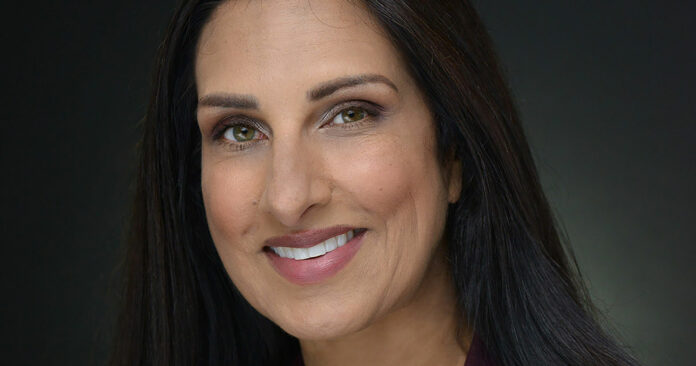For many of us, the new year represents a fresh start, and that is a concept that holds a lot of power. Hitting our internal “reset” button on Jan. 1 gives us the mental clarity and internal incentive to put our best foot forward into 2023.
There is real psychology behind the “fresh start effect,” referring to the motivational powers around the first of January’s representation of a new beginning.
As a year winds down, we see the start of a new calendar year as an opportunity to regain our focus, update our targets, and decide on new goals. It’s no coincidence that gym memberships spike in January, or that doctors get more calls from patients inquiring about check-ups or information on topics such as smoking cessation.
While resolutions are helpful in creating motivation, it can be difficult to maintain our enthusiasm long after we’ve swept up the confetti. But it’s not impossible. Here are some resolutions to try, along with tips to help us maintain our resolve:
Eating more healthfully
A healthy diet can reduce our risk of illnesses such as heart disease, diabetes and cancer. It can help boost our energy levels, sharpen our minds and improve our mental health. And it doesn’t have to be complicated. Simple changes can help make a big difference, such as incorporating more vegetables, fruits, lean proteins and healthy grains into our diets. Plan and write out your meals for the week to help ensure healthier eating and stick to the list at the grocery store. Drink more water in lieu of soft drinks and other sugary beverages. Finally, don’t expect overnight success. It’s important to begin slowly by introducing new healthy foods one at a time to see which ones you might enjoy most. Plan for bumps in the road by creating a support system. Have family members join in your new diet regimen and hold each other accountable.
Get moving
Regular activity is one of the best tools to improve or maintain good physical and mental health. Exercise can help you achieve and maintain a healthy weight, help reduce your risk for heart disease, strengthen your bones and muscles and help you reduce stress and anxiety. As little as 30 minutes a day can be effective. If you’re not used to regular exercise or feel like you don’t have time in your schedule for it, try simple activities such as a neighborhood walk, gardening, playing with your kids or grandkids or creating an in-home workout (many can be found for free online). Whatever you choose, be sure and consult your primary care doctor before beginning a rigorous new fitness or sports program.
Be your own health advocate
Taking charge of your own well-being is essential in today’s busy world. It’s important to establish a trusting relationship with a primary care provider and to schedule annual physical exams. Don’t be afraid to ask questions and express your concerns. At Mee Memorial we practice open, honest and confidential communication with our patients. That trusted relationship is key in identifying any health issues early to help achieve the best outcomes. Your doctor can also ensure that you’re on top of key health numbers like your blood pressure and cholesterol, keep you up to date on any needed immunizations and help you manage any chronic conditions you may have.
Stay in touch
A recent study found that, out of 9,392 adult participants, more than 12% of adults aged 18-79 years old were reported experiencing social isolation. If you feel as if old friends (or family) have fallen by the wayside, know that it’s good for your health to find ways to reconnect. The same study reported that a lack of social bonds can damage our health as much as smoking, obesity and high blood pressure. Even technology-fueled relationships can help us fill the gap, but be sure to follow up social media “connections” with in-person visits.
Control your stress
It’s widely known that chronic stress can increase our risk of (or worsen) anxiety, depression, diabetes, heart disease and more. While stress is an inevitable part of life, a balance of relaxation (including a full night’s sleep, socializing, creating work-home balance) is crucial. These simple stress-relievers may work for you: going for a walk; practicing meditation; caring for a pet; spending time in nature; and cleaning/organizing your living space.
Help others
We often think that our own wellbeing relies on bettering ourselves, but our happiness also improves when we help others. Volunteering has been proven to improve our mood, and it’s easy to do. Join a local literacy project, step in at a food bank, mentor a child, assist the Service League volunteer group here at Mee Memorial Healthcare System, donate blood. It all adds up — for the community … and for you! Because a person embracing a resolution to volunteer is likely to obtain a tremendous personal benefit with their own happiness.
Never stop learning
Did you know that education at any age helps boost brain power? In fact, higher education has been associated with better late-life cognitive functioning and a lower risk of developing dementia. There are other benefits to going back to school. We can gain a crucial sense of accomplishment, we meet new and interesting people and create possibilities that were never there before. Of course, we can also commit to self-teaching by subscribing to online courses, or downloading free apps in an area you’re interested in learning about. Learn a new language, read and practice poetry, tap into the art of photography — whatever interests you. Remember, personal growth is a process of both understanding yourself and pushing yourself to reach your highest potential.
For the most part, resolutions are healthy ways to hold ourselves accountable in improving our lives. Even small changes can really add up and help ensure that our well being is part of a long-term plan for 2023 and beyond.














